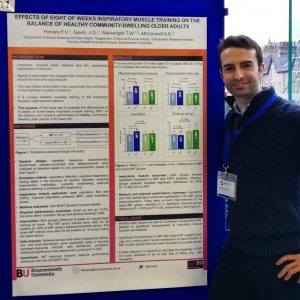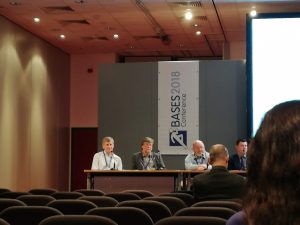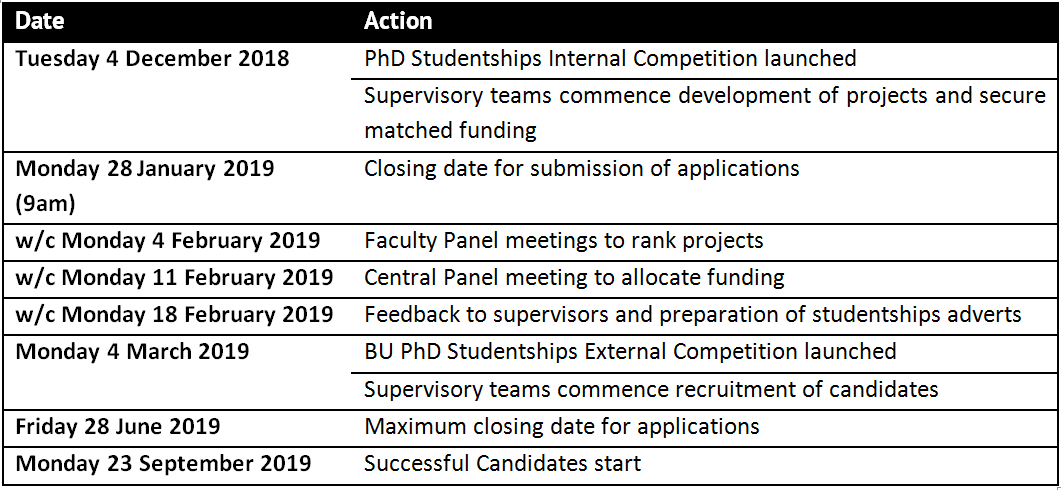The BASES conference 2018 took place on 27-28 November at Harrogate Convention Centre.

Figure 1. Presenting BU research on the effect of 8 weeks inspiratory muscle training on the balance of healthy older adults, during the first day of the BASES conference 2018
Thanks to my supervisors Professor McConnell, Dr Gavin and Professor Wainwright and with the support from Bournemouth University I had the possibility to present my research titled: The effects of 8 weeks of inspiratory muscle training on the balance of healthy older people: a randomised, double-blind, placebo controlled trial. Figure 1.
You can now read what happened and look at the media from the conference clicking the twitter button right below.

Personally, I found extremely interesting the talk of Professor Steven N Blair, Professor Ken Fox and Professor John Buckley (Figure 2).
They explained, thought direct experiences, how sports science has evolved and what we (including physiologists, kinesiologists, strength and conditioning coaches) should consider when developing research proposals. One of the many take-home points was that sports science is today considered science for/of health and that is crucial to seek collaboration between researchers and the community. Paraphrasing a famous quote from J.R.R. Tolkien, it is from the ordinary folks that research questions arise.

Professor Steven N Blair, Professor Ken Fox and Professor John Buckley discussing the past, the present and the future of sports science.
Concluding, it was a motivating experience, and I was pleased to receive many questions about my research. Definitely, a conference worth to consider also for the next year.
If you are interested in reading more about BASES, follow the link below
https://www.bases.org.uk/snews-about_us-news.html
If you want to know more about myself click the button right below

Thank you for your attention.
Francesco.

![]()








 As a result of its ideas process, NERC is pleased to
As a result of its ideas process, NERC is pleased to 



 Every BU academic has a
Every BU academic has a  By clicking on this box, on the left of the Research Blog home page just under the text ‘Funding Opportunities‘, you access a
By clicking on this box, on the left of the Research Blog home page just under the text ‘Funding Opportunities‘, you access a 












 REF Code of Practice consultation is open!
REF Code of Practice consultation is open! BU Leads AI-Driven Work Package in EU Horizon SUSHEAS Project
BU Leads AI-Driven Work Package in EU Horizon SUSHEAS Project Evidence Synthesis Centre open at Kathmandu University
Evidence Synthesis Centre open at Kathmandu University Expand Your Impact: Collaboration and Networking Workshops for Researchers
Expand Your Impact: Collaboration and Networking Workshops for Researchers ECR Funding Open Call: Research Culture & Community Grant – Apply now
ECR Funding Open Call: Research Culture & Community Grant – Apply now ECR Funding Open Call: Research Culture & Community Grant – Application Deadline Friday 12 December
ECR Funding Open Call: Research Culture & Community Grant – Application Deadline Friday 12 December MSCA Postdoctoral Fellowships 2025 Call
MSCA Postdoctoral Fellowships 2025 Call ERC Advanced Grant 2025 Webinar
ERC Advanced Grant 2025 Webinar Update on UKRO services
Update on UKRO services European research project exploring use of ‘virtual twins’ to better manage metabolic associated fatty liver disease
European research project exploring use of ‘virtual twins’ to better manage metabolic associated fatty liver disease